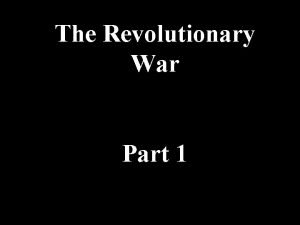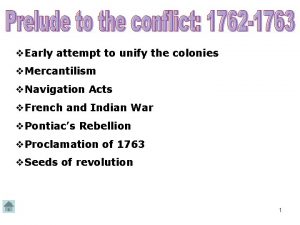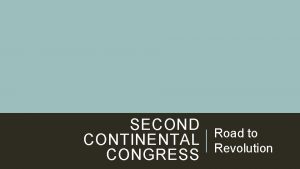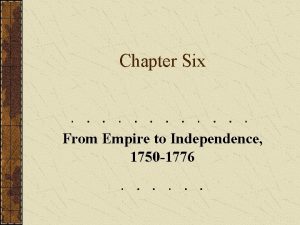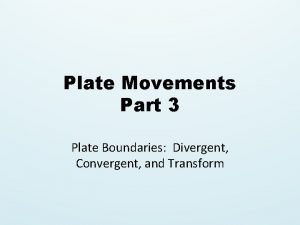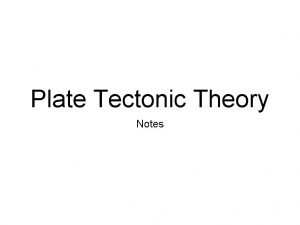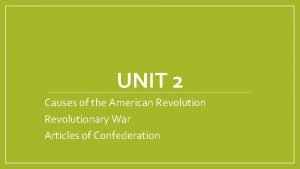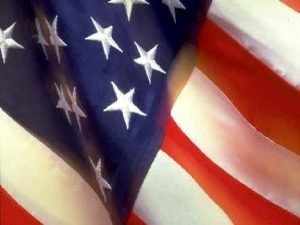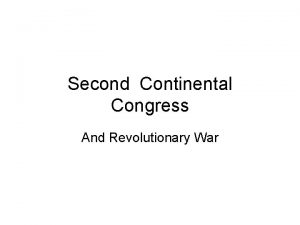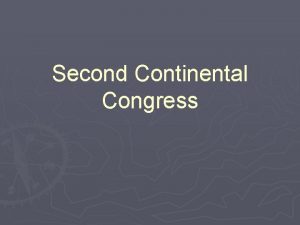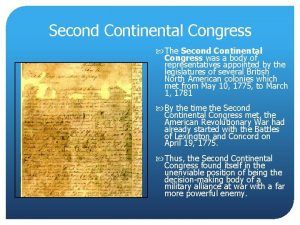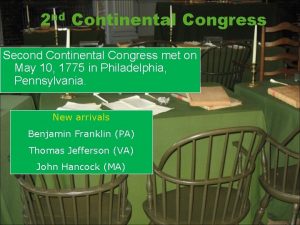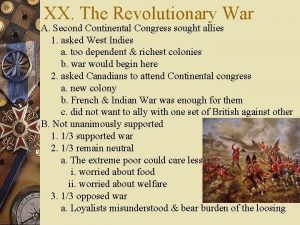The Revolutionary War Part 1 First Continental Congress








- Slides: 8

The Revolutionary War Part 1

First Continental Congress • September 1774 • delegates from all colonies except GA met in Philadelphia • voted to ban all trade with Britain until they repealed the Intolerable Acts • they called colonies to train troops to fight • delegates agreed to meet again in seven months

Effects of 1 st CC: 1. delegates of the First Continental Congress wanted rights for the colonists 2. this meeting planted the seeds of a future independent government

Midnight Ride April 18, 1775 • Gov. Gage learned rebels Samuel Adams and John Hancock were in Lexington with arms and ammunition • ordered British soldiers to arrest the rebels and destroy the supplies • Sons of Liberty sent Paul Revere and William Dawes to spread the news that British soldiers coming Effects: • militia men were waiting in Lexington and prepared to fight (although they lost)

Lexington and Concord • April 19, 1775 • in Lexington, militia men refused to drop their muskets; 8 militiamen died • British marched to Concord where they destroyed the rebels’ military supplies • Lexington and Concord are known as the first official battles of the American Revolutionary War

Effects of Lexington and Concord • Americans had to choose sides • supporters of the British were called Loyalists • supporters of the colonies were called Patriots or Rebels • “Shot heard ‘round the world” • Ralph Waldo Emerson, 1837

Declaration of Independence • adopted on July 4, 1776 by the Continental Congress • Purpose: to declare the colonies free and independent states from Britain • the main author was Thomas Jefferson

Declaration of Independence • John Locke’s Enlightenment philosophy was a main idea throughout the Declaration of Independence • Based on consent of the governed and natural rights We hold these truths to be self-evident, that all men are created equal, that they are endowed by their Creator with certain unalienable Rights, that among these are Life, Liberty and the pursuit of Happiness. — That to secure these rights, Governments are instituted among Men,
 First continental congress convenes
First continental congress convenes How mercantilism works
How mercantilism works What was the goal of the first continental congress?
What was the goal of the first continental congress? First continental congress convenes
First continental congress convenes The first continental congress
The first continental congress Convergent ocean to ocean
Convergent ocean to ocean Convergent continental boundary
Convergent continental boundary Causes of the american revolutionary war
Causes of the american revolutionary war Music of the revolutionary war
Music of the revolutionary war
